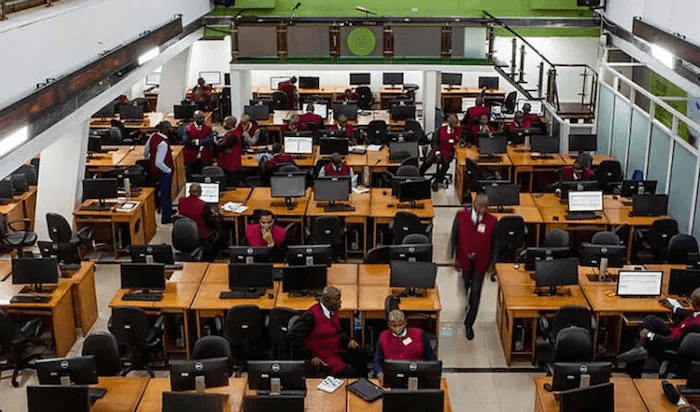In this part of the world where philanthropy often arrives with flashing cameras and front-page headlines, a quiet and subtle tradition exists. The one that leaves fingerprints without seeking applause. It is the tradition of Dr. Mike Adenuga Jr., the billionaire entrepreneur whose corporate social responsibility (CSR) has touched countless lives, not with fanfare, but with a spirit you don’t always see, yet unmistakably feel. For most Nigerians, Adenuga is synonymous with Glo, the indigenous telecom giant he founded in 2003. Behind the network of eponymous towers and data cables lies another, more enduring network: one of scholarships, cultural sponsorships, sports investments, and community upliftment. It is a network powered not by billing cycles, but by a philosophy that wealth must serve society.
This quiet streak of philanthropy espoused by Adenuga is not the type to cut ribbons for the cameras. He rarely grants interviews and avoids the trappings of a CEO who dons the garb of celebrity status. His generosity has created ripples across education, healthcare, arts, and sports ecosystems. His numerous associates state in the public domain that he believes generosity should be “felt in the fabric of life, not just in the pages of newspapers.”
This understated approach has only magnified his impact. From students in rural communities whose school fees suddenly vanish through a scholarship program, to sportsmen whose careers were revived through sponsorship deals, Adenuga’s CSR has often been most powerful where it is least expected. It’s a recurring decimal of impact across the board.
Education is the fulcrum of human development, and this has always been central to Adenuga’s philanthropic vision. He understands that a nation’s true infrastructure is not just roads and power lines, but the minds of its youth. Over the years, his business entities have quietly funded scholarships for indigent students, supported tertiary institutions, and provided ICT infrastructure to universities. Glo’s nationwide “Scholarship Scheme” has eased the burden for thousands of students, while its personal interventions, often unpublicised, have covered tuition fees and research costs for promising young Nigerians. For many, these gestures have been the bridge between potential and possibility.
Adenuga’s philanthropy has extended into healthcare, particularly in moments of national crisis. During the Ebola outbreak and later the COVID-19 pandemic, his contributions were significant but discreet. Hospitals, testing facilities, and frontline workers benefited from donations that helped save lives, though he never sought the limelight for them. His humanitarian reach has also included disaster relief, where communities hit by floods or communal clashes received food, shelter, and rehabilitation aid. For many beneficiaries, these interventions carried no press releases, just timely relief that restored dignity in desperate moments.
If there is one area where Adenuga’s CSR has been both visible and transformative, it is sports. Glo’s sponsorship of Nigerian football, from the Nigerian Premier League to national team partnerships, injected life into a sector struggling with funding. For years, the Super Eagles and Super Falcons carried Glo’s green banner, their successes amplified by Adenuga’s investments. This vision extends beyond the round leather game and touch points across boxing, athletics, and grassroots sports have all benefited from Glo’s patronage.
By funding competitions, nurturing talent, and rewarding excellence, Adenuga gave young athletes a platform to dream and a reason to keep striving. His sports philanthropy is not hinged on branding alone; it’s about giving Nigeria back its pride.
Few corporate brands have embraced Nigerian culture like Glo. From music concerts to comedy shows, cultural festivals to Nollywood premieres, Glo became synonymous with celebration. Adenuga understood that supporting the arts was more than marketing—it was cultural preservation. Through initiatives like “Glo Laffta Fest” and “Glo Mega Music Tour,” he not only created platforms for comedians and musicians but also gave audiences across Nigeria access to live entertainment. In Nollywood, Glo’s support boosted visibility and empowered filmmakers to tell stories that resonated with millions. In supporting arts and culture, Adenuga’s CSR is not abstract. It’s entertainment made accessible, livelihoods sustained, and an industry given the scaffolding to rise to global acclaim.
Furthermore, beyond the spheres of education, sports, and culture, Adenuga’s philanthropy has positively impacted communities at the grassroots level. In parts of Nigeria and West Africa, Glo network has invested in electrification projects, provided boreholes for potable water, and funded rural connectivity programs that opened up isolated communities to the digital economy. These interventions often go unnoticed in the media but are deeply felt by the people whose daily lives they transform. To them, Adenuga’s philanthropy is not a press statement. It is water in their homes, light in their classrooms, and network bars on their phones.
The facade of philanthropy without noise is what sets Adenuga apart. It is not just the scale of his CSR, but the attendant style. He does not turn charity into theatrics laden with glitz and razzmatazz. Unlike many moguls, he resists the urge to plaster his name across every gift or demand ceremonial recognition. His approach embodies an African proverb: “The hand that gives does not need to announce itself; the heart that receives will testify.”
This ethos has earned him respect as a benefactor who understands the dignity of giving. In a society where public philanthropy often serves as image laundering, Adenuga’s quiet demeanor restores faith in altruism.
At 72, Adenuga’s legacy of impact is already secure. He is the billionaire who democratized telecoms, yes. Equally, he is the philanthropist whose CSR has shaped lives in ways that statistics cannot fully capture. A student who became a doctor because of a scholarship, a village that got clean water through a borehole, an athlete who won medals thanks to sponsorship, and an artist who found their stage through Glo are all chapters in the book of Adenuga’s impact. They may never meet him in their lifetime, but they feel his spirit in their opportunities.
In a nutshell, Adenuga’s CSR is not a monument to be photographed but a spirit to be experienced. It is in the laughter at a comedy show, the roar of fans in a stadium, the quiet relief of a parent whose child’s fees were paid, and the gratitude of a patient in a hospital ward. This is why his philanthropy endures: it is woven into lives, not headlines. It is invisible in form but tangible in impact. It is the spirit you don’t see, but feel.
*Michael Abimboye is a Journalist and Communications Specialist based in Lagos, Nigeria


